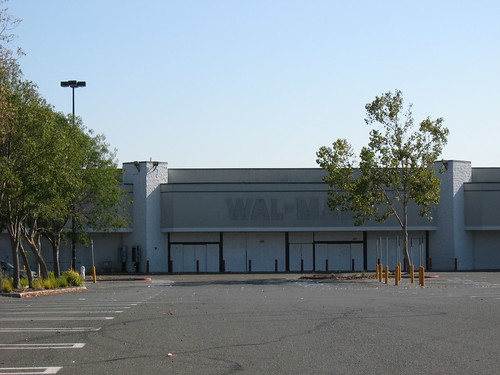- Joined
- Jul 13, 2009
- Messages
- 17,654
- Reaction score
- 12,265
- Location
- State of Jefferson
- Gender
- Male
- Political Leaning
- Moderate
Here is something that got me thinking a bit ago.
One thing I have noticed is that whenever a big box store like Walmart opens, a lot of the brain dead Liberals start to scream that it is going to destroy local businesses. This is repeated so often it is a cliche. They scream and rant and protest that they are doing it to destroy the economy. Yet the people still flock to them, and get 10 applicants for every job opening.
Well, recently had the announcement that the company is closing some stores. Mostly the older or smaller ones that are under performing in areas. You would think that these same people would be applauding, right? Wrong, now they are screaming that these stores are being closed from corporate greed.
Well, if what they said earlier is right, then these closures should create an opening that will allow smaller stores to open and flourish, right? Smaller stores that will employ more people and pay higher wages. These closures should create a huge number of new jobs, that were destroyed when the store was first opened.
Yea, and I have prime ocean front land for sale in Arizona.
Let me tell a fast story about one such store. First opened in 1988, it was one of the first Walmarts to open in California. Located less then 4 miles outside of a Navy Base, the location thrived. In the early 1990's my family and I shopped there regularly, it was far better then the other stores in the area. Then in 1995 the Navy base closed, and people and businesses started to leave as the economy tanked. Because of that and other issues, the store closed in 2006.
Well, here it is 10 years later, and the store is still closed. Nothing else moved into the location (not counting the homeless that break into it on a regular basis). And half of the store fronts in the rest of the plaza are now also vacant. No revitalization of the economy, it just continued to sink.

So I would like to have somebody explain to me this paradox. How a store opening will destroy a local economy, then the same store closing will also destroy the local economy. Because you can't have it both ways. And why it is evil for a company to build new stores, then evil again when it feels the need to close stores.
One thing I have noticed is that whenever a big box store like Walmart opens, a lot of the brain dead Liberals start to scream that it is going to destroy local businesses. This is repeated so often it is a cliche. They scream and rant and protest that they are doing it to destroy the economy. Yet the people still flock to them, and get 10 applicants for every job opening.
Well, recently had the announcement that the company is closing some stores. Mostly the older or smaller ones that are under performing in areas. You would think that these same people would be applauding, right? Wrong, now they are screaming that these stores are being closed from corporate greed.
Well, if what they said earlier is right, then these closures should create an opening that will allow smaller stores to open and flourish, right? Smaller stores that will employ more people and pay higher wages. These closures should create a huge number of new jobs, that were destroyed when the store was first opened.
Yea, and I have prime ocean front land for sale in Arizona.
Let me tell a fast story about one such store. First opened in 1988, it was one of the first Walmarts to open in California. Located less then 4 miles outside of a Navy Base, the location thrived. In the early 1990's my family and I shopped there regularly, it was far better then the other stores in the area. Then in 1995 the Navy base closed, and people and businesses started to leave as the economy tanked. Because of that and other issues, the store closed in 2006.
Well, here it is 10 years later, and the store is still closed. Nothing else moved into the location (not counting the homeless that break into it on a regular basis). And half of the store fronts in the rest of the plaza are now also vacant. No revitalization of the economy, it just continued to sink.

So I would like to have somebody explain to me this paradox. How a store opening will destroy a local economy, then the same store closing will also destroy the local economy. Because you can't have it both ways. And why it is evil for a company to build new stores, then evil again when it feels the need to close stores.
